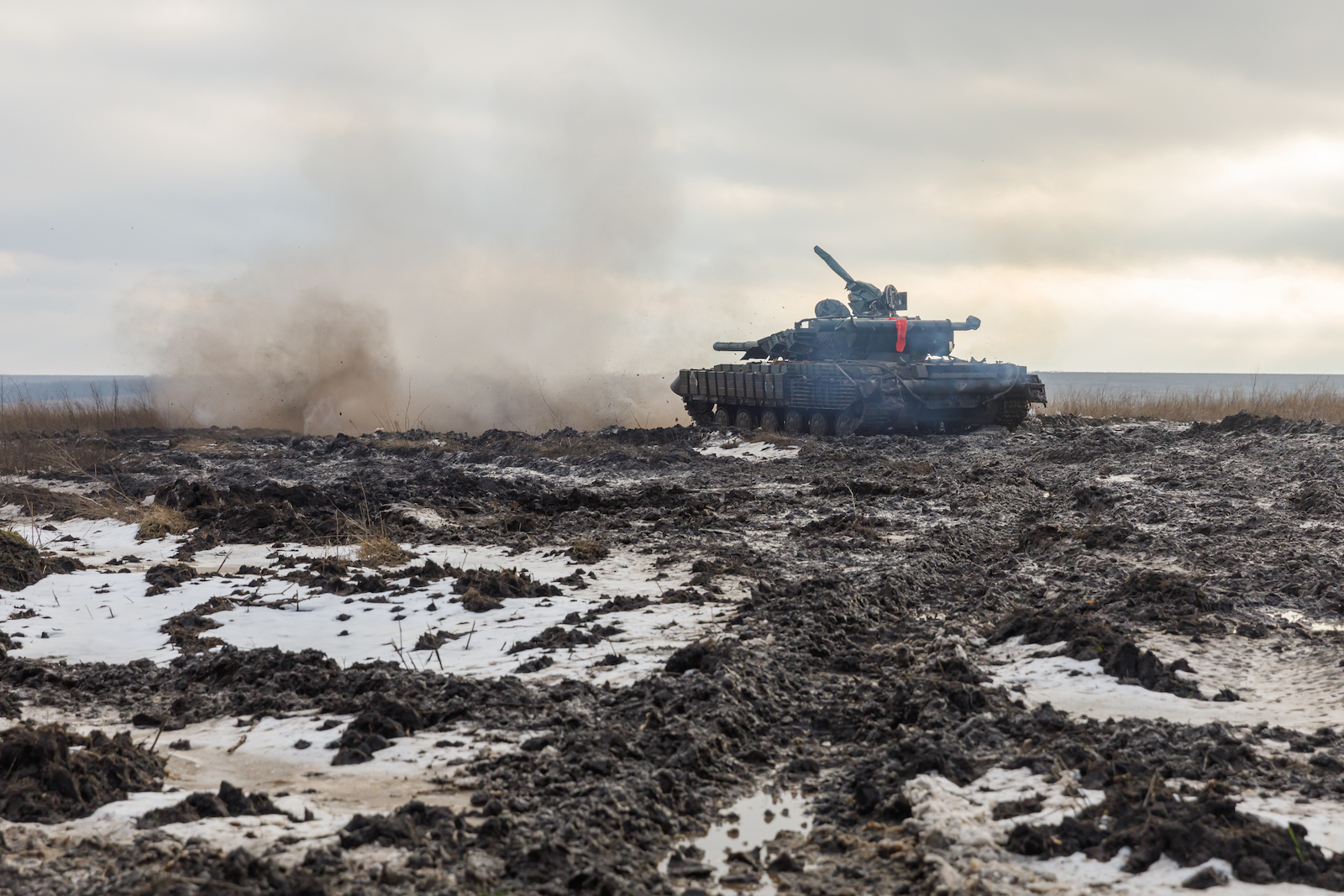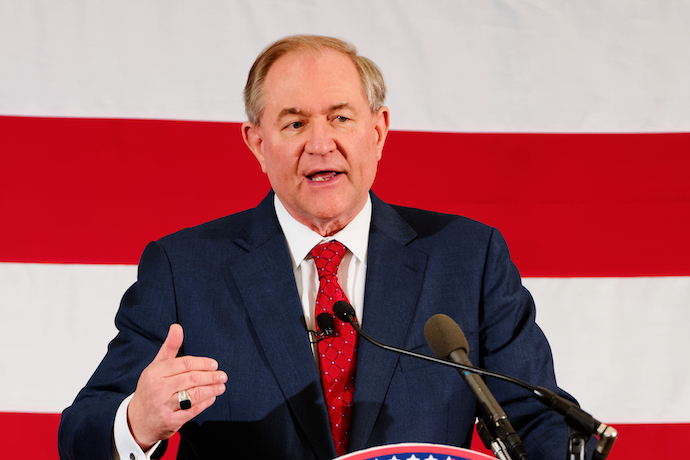
Navigating the Diplomatic Chessboard: A Conversation with Jim Gilmore on Trump, Ukraine and U.S. Diplomacy
In the tapestry of international diplomacy, few threads are as interwoven with complexity as the Organization for Security and Co-operation in Europe (OSCE). It’s a platform where geopolitical strategies unfold, alliances are nurtured, and ideological battles are waged.
I recently interviewed Jim Gilmore, whose resume reads like a primer in Republican politics: former Governor of Virginia, one-time chair of the Republican National Committee, and most notably, Donald Trump’s envoy to the OSCE. His insights offer a glimpse into the high-stakes game of diplomacy.
The OSCE, Gilmore explains, represents an underappreciated frontier where U.S. foreign policy ambitions advance. As Ambassador, his daily interactions with counterparts from a wide tableau of nations — spanning from Russia to Turkey, across Europe to the breadth of the United States and Canada — offered a panoramic view of the global political spectrum.

In the world of the OSCE, diplomacy is relentless. It is here, Gilmore posits, that one becomes adept at discerning the geopolitical choreography of allies, friends, the nonaligned, and foes. “You learn the subtleties of foreign policy in a way that’s unrivaled,” he tells me, emphasizing the deep understanding required to navigate this arena.
The organization, founded on a bedrock of Western principles, faces its share of ideological challenges. Yet, according to Gilmore, the OSCE serves as both a standard-bearer and a touchstone in international relations, preserving the sanctity of these values against encroaching pressures.
Reflecting on his tenure under President Trump, Gilmore is emphatic: “At no time was I compelled to forsake these ideals.” Rather, he paints a picture of conviction, recounting weekly declarations made from Vienna’s Hofburg Palace, where he articulated American positions with fervor.
This conversation sheds light on the oft-unseen intricacies of international diplomacy, where things stand with the war in Ukraine and Russia, and the delicate balance required to uphold national values on such a stage. It’s a testament to the enduring power of consistent, value-driven diplomacy in a world where such standards are increasingly under siege.
Can you provide an update on where things stand in Ukraine?
The battlefield is more or less static coming into Spring. Russia failed from the beginning to achieve a decisive victory and decapitate Volodymyr Zelensky’s government. Russia continues to send missiles and drones against civilian targets in a campaign of terror against the Ukrainian people. The Ukrainians have never changed from their determination to keep their sovereignty. They are not Russians and will not stand for being absorbed into a new Russian empire.
There is a danger of a new Russian offensive, emboldened by the message of weak resolve being sent at present. If Ukraine receives aid and modern weapons, a Russian offense can be defeated.
Is the war winnable for Ukraine?
Yes. By blocking the Russian conquest, Ukraine has already won. At the beginning of the conflict, Russia expected to control the Black Sea. Ukraine has destroyed much of that fleet and caused the rest to withdraw. Ukraine is reestablishing its ability to export wheat and grain. Europe has stepped up support and NATO countries have come to understand the extreme danger of Russia as an aggressor nation. The central problem is the failure of the United States to continue its military and other financial aid. The Ukrainians are running out of ammunition and are being forced back by the sheer size of the Russian attacks.

Who is holding up Ukraine aid in Congress?
Everybody shares the blame for this dangerous failure to send Ukraine aid. To be sure there are loud voices in the Republican caucus that oppose further aid and have threatened to remove U.S. House Speaker Mike Johnson if he advances the bill.
However, I believe a majority of the GOP understands and supports the Ukraine aid bill. The real problem is the rise of isolationism in the U.S. because of domestic challenges. The dissatisfaction with the southern border, the inflation people feel, the high costs of living compared to wage stagnation, and the culture wars are diverting attention away from the crucial international threats.
President Joe Biden must inform the public of this need and be the chief advocate. He is not providing that public leadership. Democrats in Congress are also not leading and are not advocating in a public way. Democrats need to publicly state they will support [Speaker Johnson] together with a majority of the Republican members if Johnson brings the bill forward. Then they should vote for the bill, and with GOP support the bill would pass. Standing by to exploit GOP divisions is not in the national interest.
Do not underestimate the Russian propaganda campaign intended to weaken American resolve in the face of aggression. The Russian message is showing up in the statements of some American officeholders, political activists, and in the media.
You served as Ambassador to the OSCE under Donald Trump. How concerned are you that Trump has said publicly that he won’t send Ukraine any more military aid if he wins in November?
As U.S. Ambassador for President Trump, at no time was I directed to back off from support for Ukraine or show indifference towards Russia. If Trump is reelected, I do not believe he will abandon Ukraine or NATO. If in a position to do so, I would advise President Trump of the gravity and danger to the U.S. if Putin wins his war of aggression in Ukraine and compromises European security.
On the campaign trail, Trump has said publicly that NATO members that don’t meet the 2% defense spending threshold should not expect the United States to defend them if Russia were to invade. Does this concern you?
That statement was made in a campaign speech and was intended to emphasize the obligation of NATO members. President Trump is against “free riders” who won’t prepare to meet the Russian challenge and take advantage of the American taxpayer. The statement was intended to shock the NATO nations into meeting their obligations. The result of Trump’s policy has been large increases in defense spending by NATO members. As a result, NATO is stronger because of Trump’s demands and leadership.
Is it in Ukraine’s best interest to negotiate a settlement with Russia now rather than after the November presidential election? If Trump wins, Ukraine will be in a weakened negotiating position due to Trump’s affinity toward Vladimir Putin.
In my judgment, Ukraine should not negotiate a settlement at all until Russia withdraws from Ukraine, pays reparations, and brings the Putin war criminals to justice. President Trump saying nice things to smooth the negotiating environment is not the same thing as “selling out.” Putin will be dealing with a more resolute president in Trump and will have to take that into account.
The real danger here is if Putin gains from his aggression. If aggression, murder, and atrocity become the new order in the world, we are headed for a major war or a world in which Americans would not be able to live. That war can still be averted, but not if Putin is rewarded for his aggression in violation of all norms of international relations. Putin must come to understand that his crimes against humanity cannot result in gains for Russia or himself.
Putin is following Hitler’s Nazi playbook to the letter. How many times do we have to learn this lesson?
